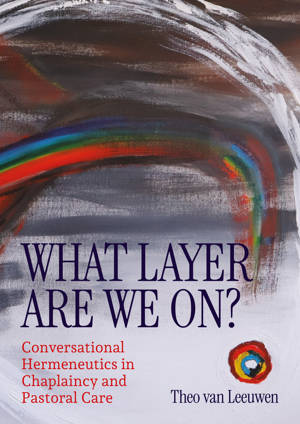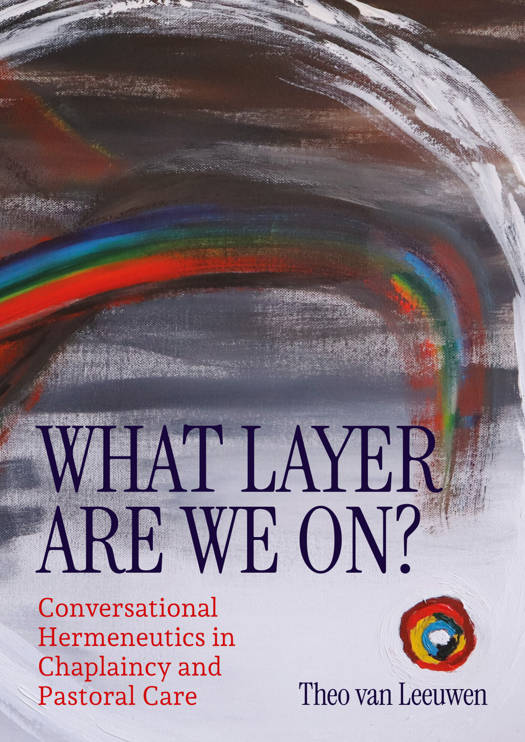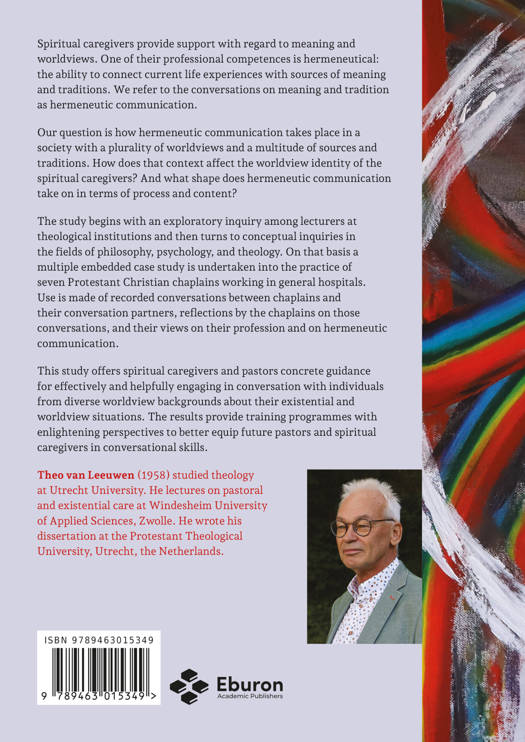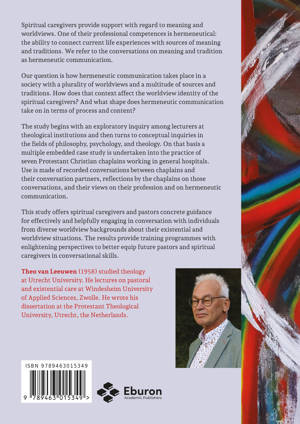
- Afhalen na 1 uur in een winkel met voorraad
- Gratis thuislevering in België vanaf € 30
- Ruim aanbod met 7 miljoen producten
- Afhalen na 1 uur in een winkel met voorraad
- Gratis thuislevering in België vanaf € 30
- Ruim aanbod met 7 miljoen producten
Zoeken
What layer are we on?
Conversational Hermeneutics in Chaplaincy and Pastoral Care
Theo van Leeuwen
Paperback | Engels
€ 36,00
+ 72 punten
Omschrijving
Spiritual caregivers provide support with regard to meaning and worldviews. One of their professional competences is hermeneutical: the ability to connect current life experiences with sources of meaning and traditions. We refer to the conversations on meaning and tradition as hermeneutic communication.
Our question is how hermeneutic communication takes place in a society with a plurality of worldviews and a multitude of sources and traditions. How does that context affect the worldview identity of the spiritual caregivers? And what shape does hermeneutic communication take on in terms of process and content?
The study begins with an exploratory inquiry among lecturers at theological institutions and then turns to conceptual inquiries in the fields of philosophy, psychology, and theology. On that basis a multiple embedded case study is undertaken into the practice of seven Protestant Christian chaplains working in general hospitals. Use is made of recorded conversations between chaplains and their conversation partners, reflections by the chaplains on those conversations, and their views on their profession and on hermeneutic communication.
This study offers spiritual caregivers and pastors concrete guidance for effectively and helpfully engaging in conversation with individuals from diverse worldview backgrounds about their existential and worldview situations. The results provide training programmes with enlightening perspectives to better equip future pastors and spiritual caregivers in conversational skills.
Theo van Leeuwen (1958) studied theology at Utrecht University. He lectures on pastoral and existential care at Windesheim University of Applied Sciences, Zwolle.
Our question is how hermeneutic communication takes place in a society with a plurality of worldviews and a multitude of sources and traditions. How does that context affect the worldview identity of the spiritual caregivers? And what shape does hermeneutic communication take on in terms of process and content?
The study begins with an exploratory inquiry among lecturers at theological institutions and then turns to conceptual inquiries in the fields of philosophy, psychology, and theology. On that basis a multiple embedded case study is undertaken into the practice of seven Protestant Christian chaplains working in general hospitals. Use is made of recorded conversations between chaplains and their conversation partners, reflections by the chaplains on those conversations, and their views on their profession and on hermeneutic communication.
This study offers spiritual caregivers and pastors concrete guidance for effectively and helpfully engaging in conversation with individuals from diverse worldview backgrounds about their existential and worldview situations. The results provide training programmes with enlightening perspectives to better equip future pastors and spiritual caregivers in conversational skills.
Theo van Leeuwen (1958) studied theology at Utrecht University. He lectures on pastoral and existential care at Windesheim University of Applied Sciences, Zwolle.
Specificaties
Betrokkenen
- Auteur(s):
- Uitgeverij:
Inhoud
- Aantal bladzijden:
- 320
- Taal:
- Engels
Eigenschappen
- Productcode (EAN):
- 9789463015349
- Verschijningsdatum:
- 20/01/2025
- Uitvoering:
- Paperback
- Afmetingen:
- 170 mm x 240 mm
- Gewicht:
- 610 g

Alleen bij Standaard Boekhandel
+ 72 punten op je klantenkaart van Standaard Boekhandel
Beoordelingen
We publiceren alleen reviews die voldoen aan de voorwaarden voor reviews. Bekijk onze voorwaarden voor reviews.













